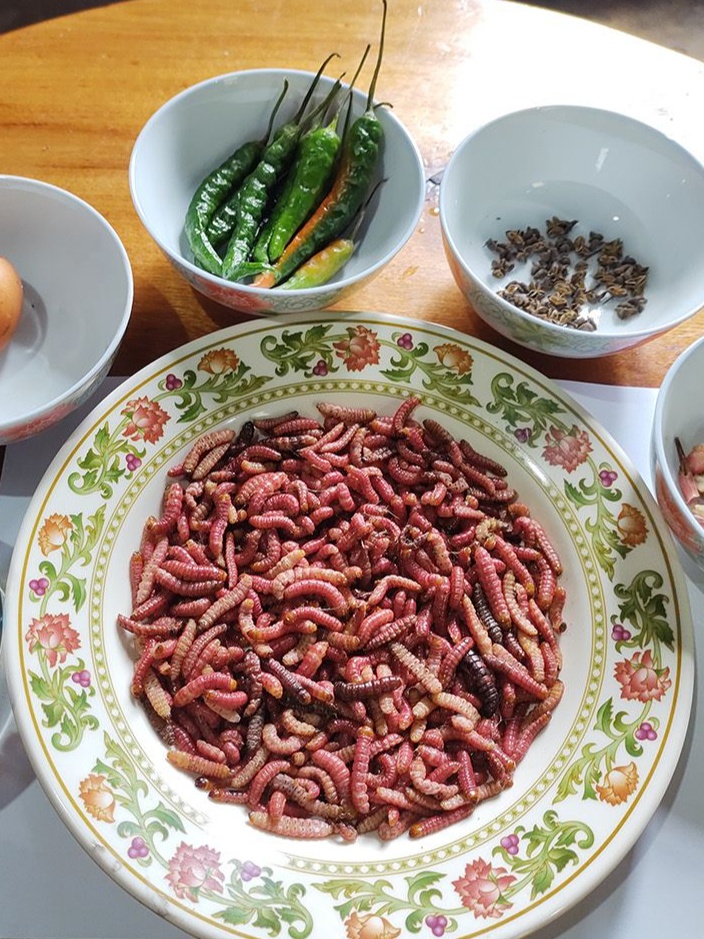Last week, Tansha Vohra tasted rhinoceros beetle larvae for the very first time in her life. “These are beetles found frequently in compost bins, but we found these larvae growing inside some rotting coconut tree bark at my mentors, Rosie and Peter Fernandes’ permaculture-based garden in Assagao,” says the 32-year-old founder of the Boochi Project. “All its life, all this insect has eaten is coconut bark. We wanted to taste the insect itself, so Peter went by his instincts. We fried it with a quarter teaspoon of beef fat, salt, and pepper. It tasted like bacon—and I cannot describe how good it was!”
Vohra is enthusing about this unusual gastronomic exploration from the site of her workshop at the Serendipity Arts Festival 2024 in Panjim, Goa—where the Boochi Project was incubated in 2021, and to where it returns now as part of the Food Lab’s deep dive into the future of food. Vohra’s exploration of what it means to decolonise the practice of eating insects began at this same garden in 2018, when the Bengaluru-born communications grad packed up her bags and moved from Mumbai to Goa. Specifically, one sunny afternoon when, instead of getting to the raw cacao fruit she’d never tasted, she ended up, on the advice of some friends, harvesting an ant nest growing on the tree and made a chutney out of it.
“It was exquisite—exactly my flavour profile, super sour, super tangy,” Vohra recalls. Immediately, her interest was piqued, and with a bit of basic research, she was able to find communities in Tamil Nadu, Jharkhand, Odisha, Karnataka, and Goa that ate insects. “Typically, these were indigenous or Dalit communities,” she says. “In some way, it was instantly this idea that these were groups of people whose food and culture was not aspirational. No one’s actually celebrating these food cultures, we’re just extracting what we want and leaving them behind. That made me feel like there was something deeper going on here.”
To dig deeper into the wild world of entomophagy (the practice of eating insects), Vohra did her Master’s in food anthropology at SOAS in London, while simultaneously expanding her research into the cultures of insect-eating in India by gathering recipes and holding cookouts. What she has unearthed so far has been endlessly surprising. “The only two states that I haven’t come across an example of insect consumption yet are Kashmir and Himachal Pradesh,” she observes. “They were frying and dipping locusts in honey in Delhi during the Mughal era. In Karnataka, there are communities that still eat red ants. In the Northeast, they eat the World Cup beetle—named so because it comes up once every four years around the time of the FIFA World Cup.”












